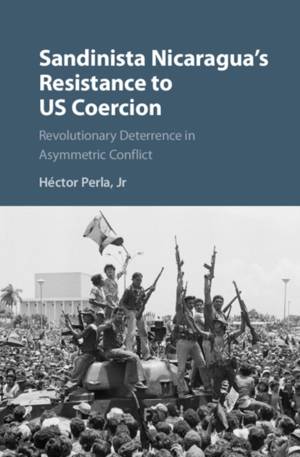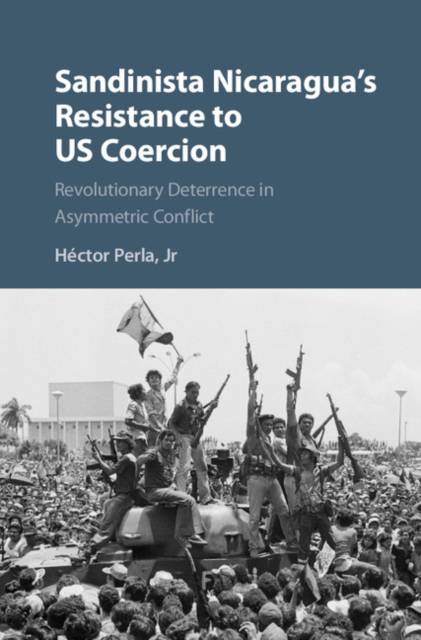
Bedankt voor het vertrouwen het afgelopen jaar! Om jou te bedanken bieden we GRATIS verzending (in België) aan op alles gedurende de hele maand januari.
- Afhalen na 1 uur in een winkel met voorraad
- In januari gratis thuislevering in België
- Ruim aanbod met 7 miljoen producten
Bedankt voor het vertrouwen het afgelopen jaar! Om jou te bedanken bieden we GRATIS verzending (in België) aan op alles gedurende de hele maand januari.
- Afhalen na 1 uur in een winkel met voorraad
- In januari gratis thuislevering in België
- Ruim aanbod met 7 miljoen producten
Zoeken
Sandinista Nicaragua's Resistance to US Coercion
Revolutionary Deterrence in Asymmetric Conflict
Héctor Perla
€ 183,45
+ 366 punten
Omschrijving
How was the Sandinista National Liberation Front (FSLN) of Nicaragua able to resist the Reagan Administration's coercive efforts to rollback their revolution? Héctor Perla challenges conventional understandings of this conflict by tracing the process through which Nicaraguans, both at home and in the diaspora, defeated US aggression in a highly unequal confrontation. He argues that beyond traditional diplomatic, military, and domestic state policies a crucial element of the FSLN's defensive strategy was the mobilization of a transnational social movement to build public opposition to Reagan's policy within the United States, thus preventing further escalation of the conflict. Using a contentious politics approach, the author reveals how the extant scholarly assumptions of international relations theory have obscured some of the most consequential dynamics of the case. This is a fascinating study illustrating how supposedly powerless actors were able to constrain the policies of the most powerful nation on earth.
Specificaties
Betrokkenen
- Auteur(s):
- Uitgeverij:
Inhoud
- Aantal bladzijden:
- 260
- Taal:
- Engels
- Reeks:
Eigenschappen
- Productcode (EAN):
- 9781107113893
- Verschijningsdatum:
- 17/02/2017
- Uitvoering:
- Hardcover
- Formaat:
- Genaaid
- Afmetingen:
- 157 mm x 240 mm
- Gewicht:
- 476 g

Alleen bij Standaard Boekhandel
+ 366 punten op je klantenkaart van Standaard Boekhandel
Beoordelingen
We publiceren alleen reviews die voldoen aan de voorwaarden voor reviews. Bekijk onze voorwaarden voor reviews.









